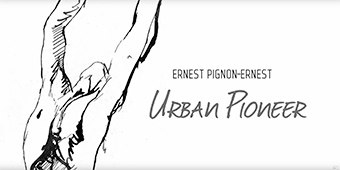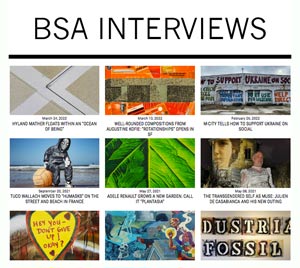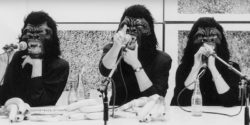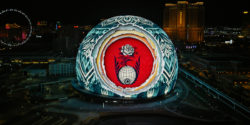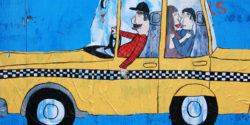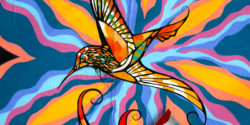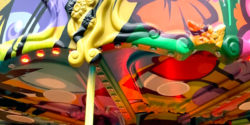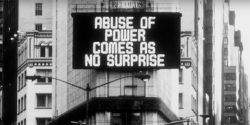At 11 Spring Street in Nolita, a neighborhood in lower Manhattan, sits a 19th Century brick building that two centuries ago was a stable and carriage house.
As the 2oth Century turned, the building had gained a following by urban art fans and street artists from all over the world. Over the course of the 1990’s graffiti and street artists had used the exterior walls of this building as their multi-storied canvas. Within a short time the address had become a destination, an uncurated museum for graffiti, street artists, and tourists alike – an up-to-the-minute ever changing conversation of street culture.
But the blanding plague of gentrification that swept across the city claimed the urban art gallery and it succumbed to condoitus a couple of years ago. Like the visual equivalent of a New Orleans funeral march, street artists and graffiti artists took one last chance to festoon the edifice as it’s soul departed to allow conversion to condominiums, and the local paper did a story on it. Every inch of the facade and much of the interior was covered and recovered by layers of art and graffiti. “11 Spring” took one last bow.
Demolition, buffing, and upgrading to the comforts of a new Manhattan wealthy class soon followed the celebration, and pinstriped men and pencil skirted women strutted through it’s white plastered interior waving their arms and referring proudly to it’s storied past; the artists that once brought attention to the location, abruptly “unfriended”. Among the many ironies of the story, the market for the new spaces has not materialized, reportedly forcing it’s owners to cut their asking prices almost in half this year.
Street photographer Vinny Cornelli used to arrive at the building early in the morning, before the streets came alive with commuters and shop keepers, to gaze upon the raw collage.
He captured the thick layers of art that formed the exterior finish of the walls; covered in spray paint, wheat pastes, rubber, metal, plastic, cardboard, wood and just about anything available. As if in a zen haze, he zoomed in on details, and stepped back to frame the visible cacophony.
This small sample of images show the layering of creativity in the moment before mute. The organic collage speaks to the many contributors and the conversations of the street: a collective contribution evoking chaos, humor, classical, commercial, pop and poetry.
>>>> << >< <<< >>> >> >>>>>>
 BROOKLYN STREET ART LOVES YOU MORE EVERY DAY
BROOKLYN STREET ART LOVES YOU MORE EVERY DAY





